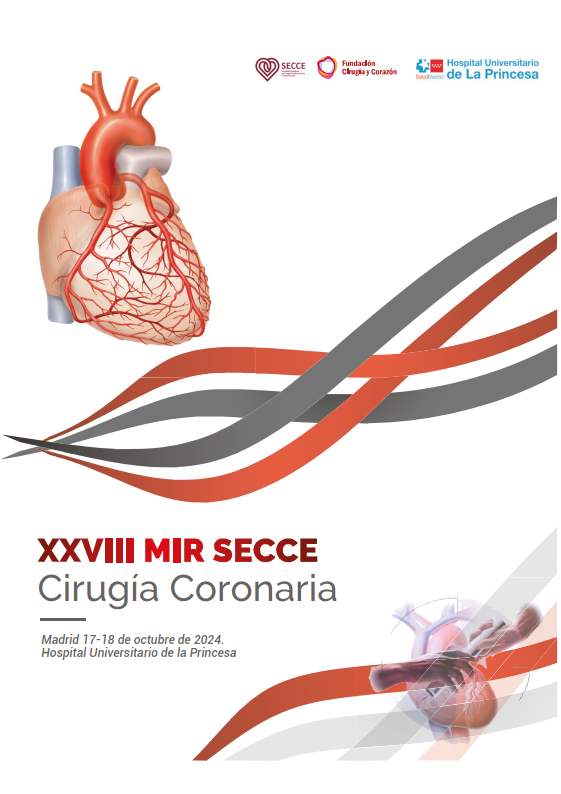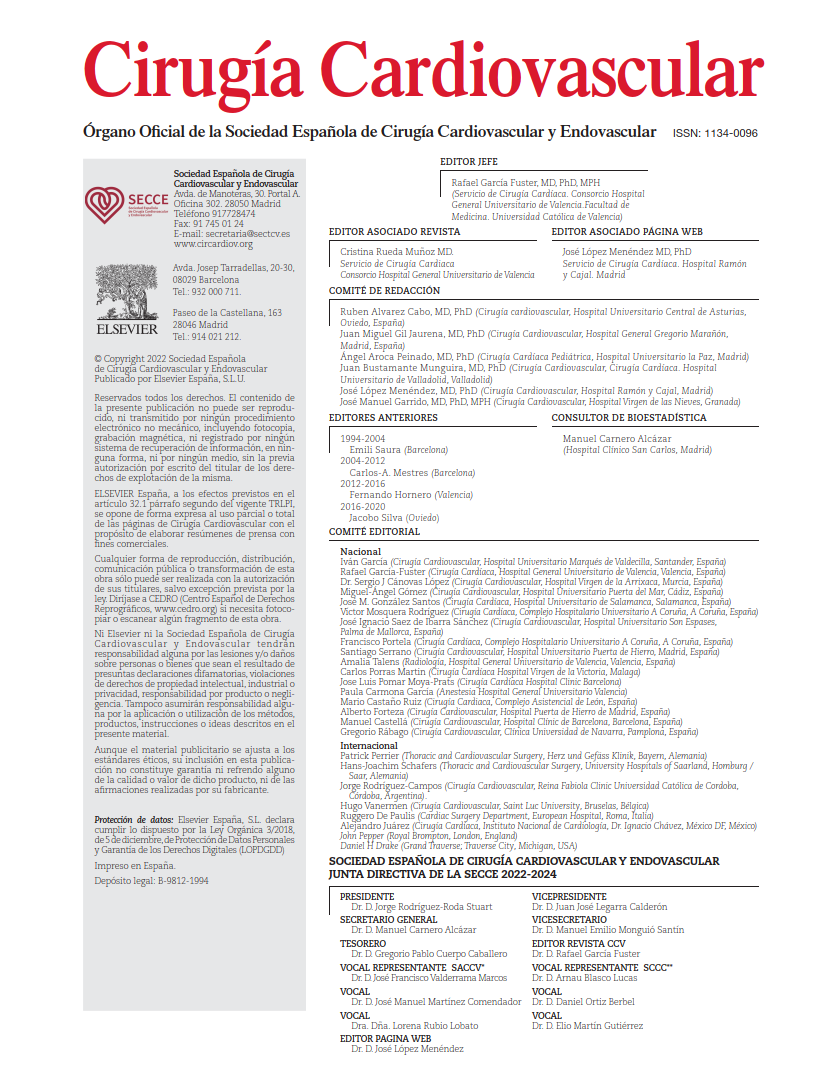Secondary or functional mitral regurgitation is a common complication in patients with cardiomyopathy, fostering the onset of heart failure and associating with greater mid- and long-term morbidity and mortality.
Current treatment options include transcatheter edge-to-edge repair and mitral valve surgery, but we lack randomized clinical trials directly comparing these two strategies. In fact, clinical practice guidelines vary between regions. The European Society of Cardiology recommends percutaneous repair for patients unsuitable for surgery, while American guidelines favor percutaneous repair as the standard treatment except in patients with unfavorable anatomy. The MATTERHORN study aims to compare the effectiveness and safety of both approaches.
MATTERHORN is a multicenter, open-label, randomized non-inferiority trial conducted in Germany. It included 210 patients with heart failure and severe secondary mitral regurgitation who continued to exhibit symptoms despite optimal medical therapy. The primary efficacy endpoint was a composite of death from any cause, hospitalization for heart failure, mitral valve reintervention, implantation of a left ventricular assist device, or stroke within the first year after the procedure. The primary safety endpoint was a composite of major adverse events occurring within 30 days post-procedure. Secondary objectives included recurrence of significant mitral regurgitation (grade 3+ or 4+), one-year safety, and hospitalization duration as key parameters.
Of the 210 randomized patients, noteworthy characteristics included: mean age of 70.5 years, median STS-PROM risk score of 2%, EuroSCORE II median of 3%, mean left ventricular ejection fraction of 41%, and a surgical strategy consisting of 72% mitral repairs and 28% valve replacements.
At 12 months, 16.7% of patients in the transcatheter repair group and 22.5% in the surgery group experienced one or more events in the primary efficacy endpoint (95% CI, -17% to 6%; p < .001 for non-inferiority). The non-inferiority limit was set at 17.5%, which was met as the upper interval was at 6%. This result indicates that transcatheter repair was non-inferior to surgery regarding efficacy, reflected in a similar reduction in death, hospitalization, and other severe events.
In terms of safety, within 30 days post-procedure, 14.9% of patients in the transcatheter repair group presented major adverse events, compared to 54.8% in the surgery group (estimated difference of -40%; 95% CI, -51% to -27%; p < .001). The most common adverse events in the surgical group were major bleeding and the onset of atrial fibrillation.
Procedure success was high in both groups. In the transcatheter group, three incidents occurred: one partial clip detachment without embolization and two chordal ruptures requiring valve replacement (one immediate and one delayed). In the surgical group, eight patients required reintervention: two for valve replacement (failed repair) and the rest for bleeding or surgical wound infection.
For the one-year safety objective, results were similar to those at 30 days: an absolute reduction of 39% in events in the percutaneous group (95% CI, -51% to -25%).
Recurrence of grade 3+ or 4+ mitral regurgitation was higher in the transcatheter group (8.9%) than in the surgery group (1.5%). Nevertheless, both groups showed significant improvements in functional class and quality of life as assessed by questionnaires. The average hospital and ICU stays were significantly longer in the surgery group (4 vs. 12 days, and 1 vs. 3 days, respectively).
COMMENTARY:
Historically, secondary mitral regurgitation has been a condition with limited surgical intervention. Clinical benefits are harder to achieve when treating the end-stage consequence of cardiomyopathy rather than the primary cause, as with primary mitral regurgitation.
This trend began to shift with the advent of percutaneous devices and clinical trials like COAPT, MITRA-FR, and recently, RESHAPE-HF 2. All these trials randomized optimal medical therapy alone against an added benefit of correcting secondary mitral regurgitation. The MATTERHORN trial goes a step further, comparing percutaneous repair’s non-inferiority against surgery in a low-surgical-risk population (STS-PROM 2%, EuroSCORE II 3%).
MATTERHORN results demonstrate that transcatheter mitral repair is comparable (non-inferior) to surgery in terms of a composite of clinical events, reducing complications inherent to major heart surgery. Hospital stay durations are significantly reduced with percutaneous repair, and efficacy remains high and similar across both groups (>95%).
Transcatheter repair offers a less invasive alternative for patients with secondary mitral regurgitation who do not require heart surgery for other reasons, regardless of surgical risk. Ultimately, the choice of technique should be a collaborative decision involving the multidisciplinary team and the patient, factoring in feasibility for percutaneous repair, comorbidities and surgical risk, necessity for additional interventions, and center experience/results.
In concluding this blog entry, I’d like to highlight some limitations of the study:
- Follow-up duration: Follow-up was limited to one year, leaving long-term outcomes—especially in terms of durability of transcatheter repair and heart failure progression—uncertain.
- Technological advancements: The trial spanned over seven years, meaning not all patients benefited from the latest transcatheter devices (most used 2nd and 3rd generation devices rather than 4th).
- Specialized centers: Participating centers had extensive experience in mitral repair, which may limit external validity.
- Bias: Being an open-label trial, the possibility of bias is greater.
In summary, the study suggests that transcatheter repair is an effective and safer therapeutic option for patients with heart failure and secondary mitral regurgitation. Additional studies and extended follow-up are necessary to evaluate long-term outcomes.
REFERENCE:
Baldus S, Doenst T, Pfister R, Gummert J, Kessler M, Boekstegers P, et al; MATTERHORN Investigators. Transcatheter Repair versus Mitral-Valve Surgery for Secondary Mitral Regurgitation. N Engl J Med. 2024 Aug 31. doi: 10.1056/NEJMoa2408739.



